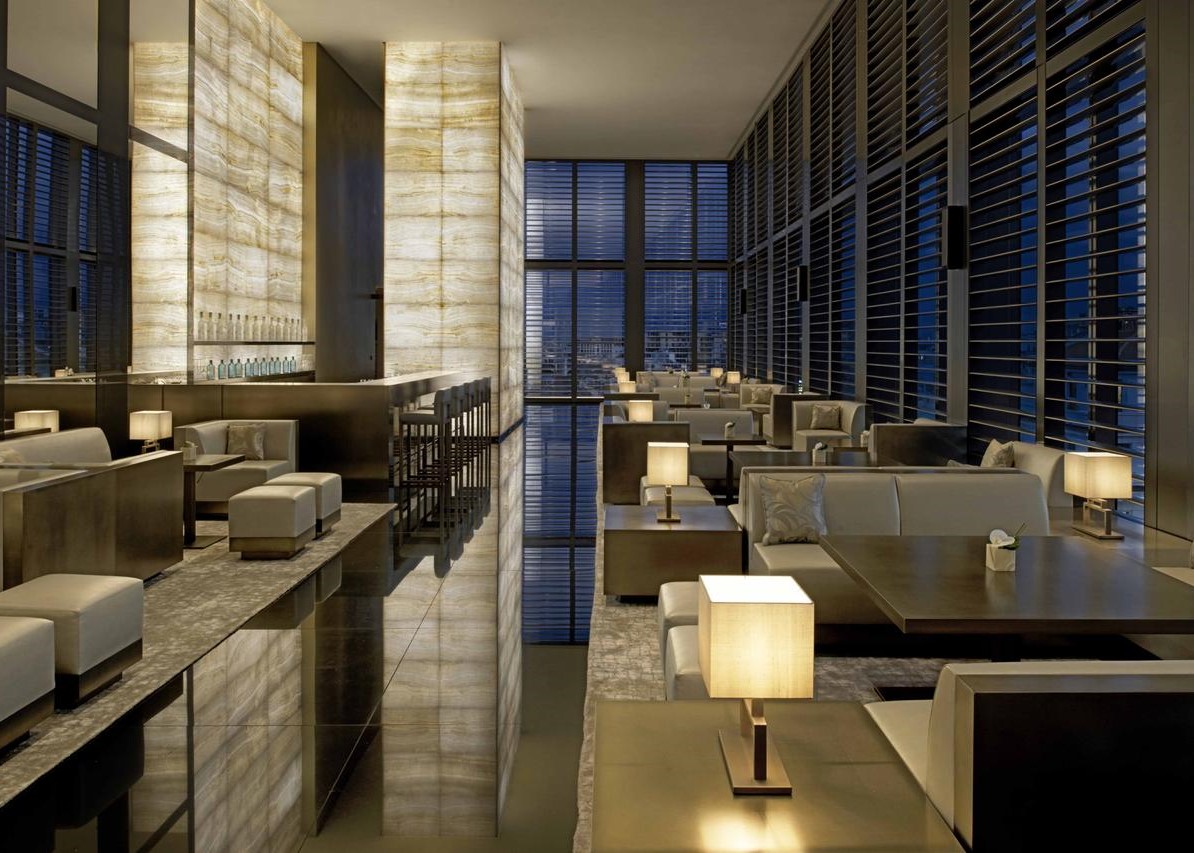
 Patricia Gatto Puglia
Patricia Gatto Puglia
Italian Fashion and Lifestyle: Luxurious Hotels that Italian Fashion Built
- WTI Magazine #114 Apr 20, 2019
-

 Patricia Gatto Puglia
Patricia Gatto Puglia
In the last 25 years some of the biggest names in Italian fashion, including Armani, Bulgari, Versace, Fendi and Ferragamo, have extended their reach into the luxury hotel business. Development has largely followed economic cycles, occasionally defying the odds, but the fit between Italian fashion and hospitality has proved to be as resilient and enduring as Italian style itself.
Each design house infuses its properties with its signature style and essence, from the overall décor to the most minute branding details, all to cultivate and communicate a particular experience. Well-heeled guests have the pleasure of immersing themselves in the elegant, sometimes lavish interiors of their favorite Italian fashion and style icon.
Industries evolve with the times. It turns out that top-tier style and service continue to be critical success factors for luxury hotels, but travelers are now in search of experiential luxury, whether tied to art, culture, food, wine, and wellness or other individual interests. Affluent millennials and even wealthy Gen-Zers are also changing the playing field, looking for purpose, authenticity, and customization in their travel and lodging expenditures. When a hotel successfully delivers, it is more likely that guests will return for another stay. All that said, the Italians have largely dominated the designer hotel landscape, with their properties ranking best in class year after year. What’s the landscape?
Who came first?
Pecking order counts, so we’ll start there. Versace touts its having been the first designer to open a fashion-branded luxury hotel, in this case on Australia’s Gold Coast, in 2000. The hotel is resplendent with Versace’s signature gold detailing, marble, mosaics and bold color. Versace opened its Dubai hotel in 2016. But the Salvatore Ferragamo family has been in the hospitality since 1995, carefully expanding and curating its Lungarno Collection to include six boutique hotels, including its Portrait Suites, in Florence and Rome. Ferragamo also runs two wine-producing properties and resorts in the Tuscan countryside, Il Borro and Castiglion del Bosco. Unlike its hotel peers, Ferragamo does not use its name to brand its properties. Leonardo Ferragamo says that while the family name is not present by design, it is certainly behind the properties.
Armani, Bulgari, Fendi
More recently established Italian designer properties are the Armani hotels in Dubai and Milan, which opened within one year of each other in 2010, each exuding Armani minimalist elegance. The Dubai hotel and residences occupy 18 floors of the Burj Khalifa, the world’s tallest tower. “Warm, Italian-style service” is one of the hotel’s important attributes says the Armani website, with every guest assigned a Lifestyle Manager, or personal butler-concierge, who handles everything from arranging childcare to booking dinners at the city’s best restaurants. In Milano, Via Manzoni provides a great urban location for the Armani hotel, whose modern rooftop atrium sits atop the building’s masonry façade. Inside it’s all muted color and signature furnishings, available for purchase through the Armani Casa line.
Bulgari, which has been owned since 2011 by LVMH, the French firm behind labels Dior and Louis Vuitton as well as Fendi, Loro Piana and other brands, has opened six hotels since 2004, in Milan, London, Dubai, Bali, Beijing, and Shanghai. Bulgari plans new locations in Paris in 2020, Moscow in 2021, and Tokyo in 2022. There’s no mistaking that Bulgari’s parent company recognizes the revenue potential of experiential hospitality: LVMH announced last December that it was acquiring for $3.2 billion the Belmond Hospitality Group, which owns Hotel Cipriani in Venice and offers travelers rail journeys in historic carriages on its Venice Simplon-Orient Express line from London to Venice. The experience? “Be swept away by rolling razzmatazz and glamour on a grand through Europe…”says the website.
Fendi, which became part of the LVMH group in 2000, has a sole hotel in Rome, which simply consists of seven exquisitely appointed suites nestled within the refurbished Palazzo Fendi at Largo Carlo Goldoni. It’s a multipurpose palazzo—the Fendi Private Suites are on the top floors, Fendi’s corporate offices are here as well, as is their flagship store. There are restaurants and bars. In effect, Fendi offers its guests the ultimate immersion experience—they can shop, dine and sleep Fendi. Conde Nast described the interiors as a “neat extension of Fendi's take on luxury: everything is understatedly elegant, historically aware and ferociously expensive.” Much of the minimalist furniture was designed by the late Karl Lagerfeld, who had been creative director of Fendi since 1965.
Fendi might not have a global fleet of hotels (at least not at the moment) but it is nonetheless involved in global design projects for residential complexes around the world. Most recently, it is building a collection of 41 bespoke Fendi Private Residences in Scottsdale, Arizona that will be completed in 2020. Fendi’s Casa Fendi homewares and its interior design services are in high demand, as are Armani’s and Versace’s. Unmistakable Italian fashion design creates the lifestyle the high-net-worth crowd covets.
Beyond butlers and cocktails
Beautifully sleek hotel settings aside, people generally visit other countries to experience the uniqueness and beauty of the place and to immerse themselves in the country’s heritage. Most luxury market studies confirm that millennials in particular are evaluating a brand or product in terms of what mission it represents, whether it contributes to the greater good, and whether it represents them well. So, there’s a good amount of introspection afoot. This corresponds with travelers to Italy expressing a growing desire to discover or perhaps even rediscover a region, to dig a little deeper to experience something real and authentic, to experience artistic traditions, craftsmanship and the beauty of its nature, its art and architecture.
Working to keep Italian culture in the spotlight
Leonardo Ferragamo has been promoting the work and goals of a new non-profit organization, Tuscany Again, which aims to promote Tuscany’s cultural gems – historic sites, artistic traditions, food and wine experiences, and the natural beauty of the region. Tuscany Again is sponsored by Italy’s Fondazione CR Firenze, which contributes to art and culture projects and works to conserve Tuscany’s heritage. Tuscany Again offers a curated selection of luxury travel experiences that take travelers into heart and soul of Tuscany and beyond. Italy’s expert fashion hoteliers certainly know a thing or two about that!